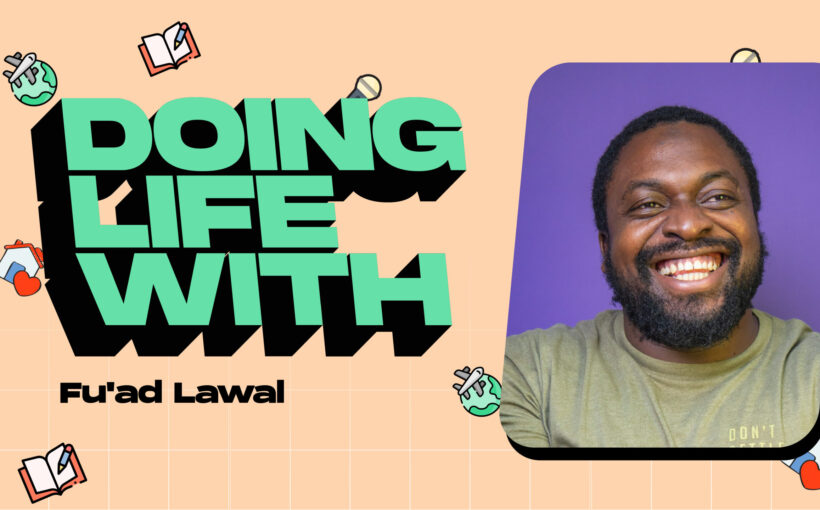Doing Life With… is a BellaNaija Features series that aims to showcase how people are living, working, travelling, journalling, taking care of their families and… everything in between. We aim to document the lives of all people and ensure everyone is well-represented at BN through storytelling.
Last week, we had a conversation with Genoveva Umeh. Did you miss it? Read it here.
This week, we are doing life with Fu’ad Lawal. Fu’ad authors Vistanium, a Substack-developed publication where he makes a “big deal of small stories” and is the founder of Start Archiving where Nigerian history is made accessible by digitising old newspapers.
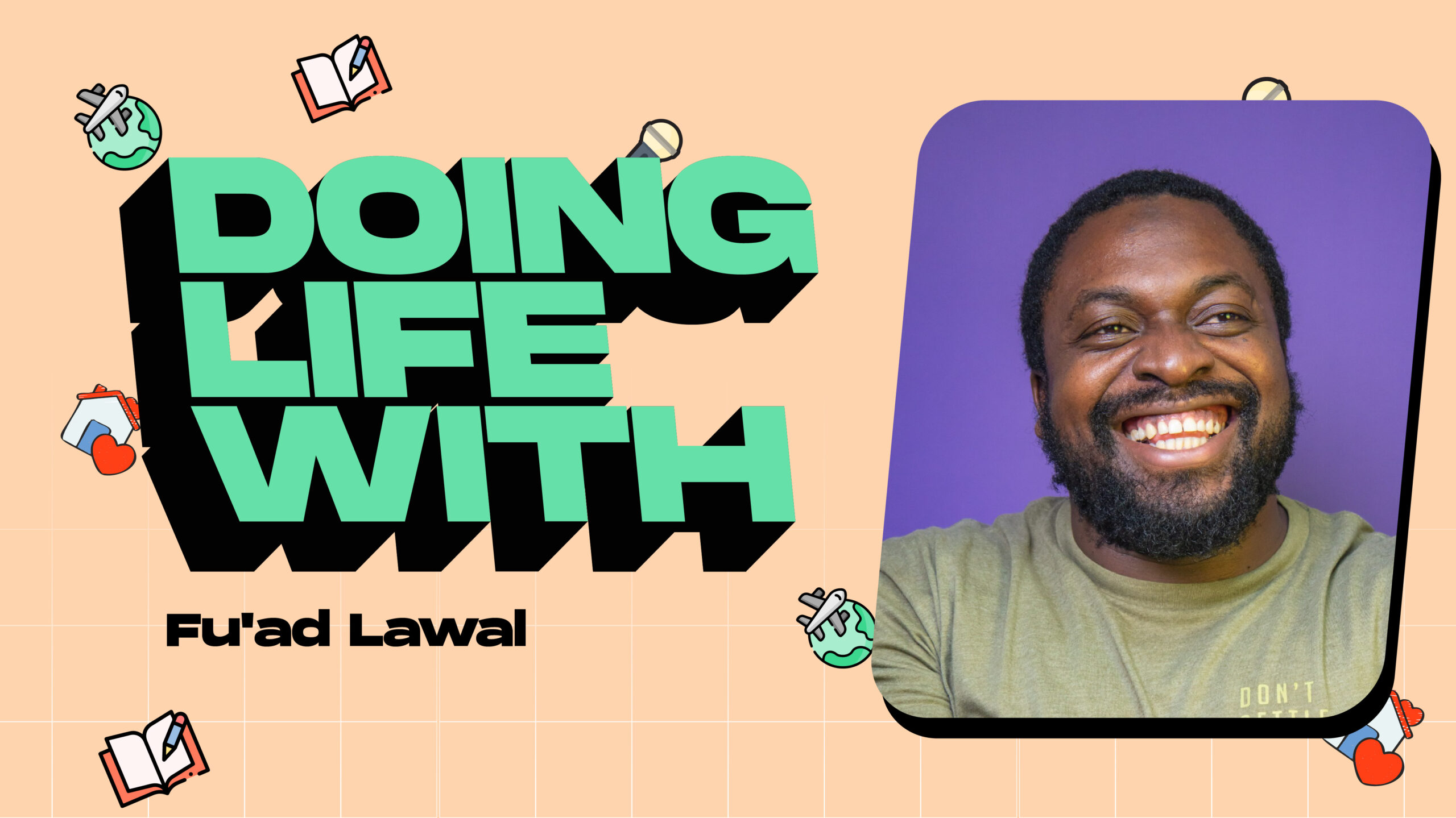
Hey Fu’ad, how are you feeling right now?
I just finished making Eba – white garri plus a teaspoon of palm oil to give the Ijebu sour and the non-stickiness of yellow Eba – cooked over the fire, too. My friend brought Efo Riro over. I might be generally stressed, overwhelmed, and anxious about stuff but, at this moment? I’m good, I’m good.
Haha, that’s great. Give us a glimpse into what aspect of your childhood influenced who you are today
Everything, to be honest. We are the sum of all the life we’ve chopped and shege we’ve sipped, aren’t we? But if I had to pin it down to one thing, I’d say I grew up in an environment that was mostly kind and enthusiastic about curiosity. Accidentally breaking things. Pouring stuff. Making stuff. Writing stuff. Pyro-stuff. The whole thing.
You’re digitising old newspapers through Start Archiving. Tell us about this
Newspapers are an especially effective medium when you’re trying to access history because journalists show up every day, collecting the mundane or magnificent things in the world around them. First, Archivi.ng is making Nigerian history accessible by digitising old Nigerian newspapers. We find old newspapers, seek permission from the publishers, scan the newspapers – and the last part, which will now be possible from September – we’ll make the newspapers accessible to everyone. For the first phase of this project, we’re digitising one newspaper a day from 1960 to 2010. That is one newspaper from January 1, 1960, January 2, and so on. That means we have to scan 18,627 days. So far, we’ve scanned 3,816 days, roughly 20% of our goal.
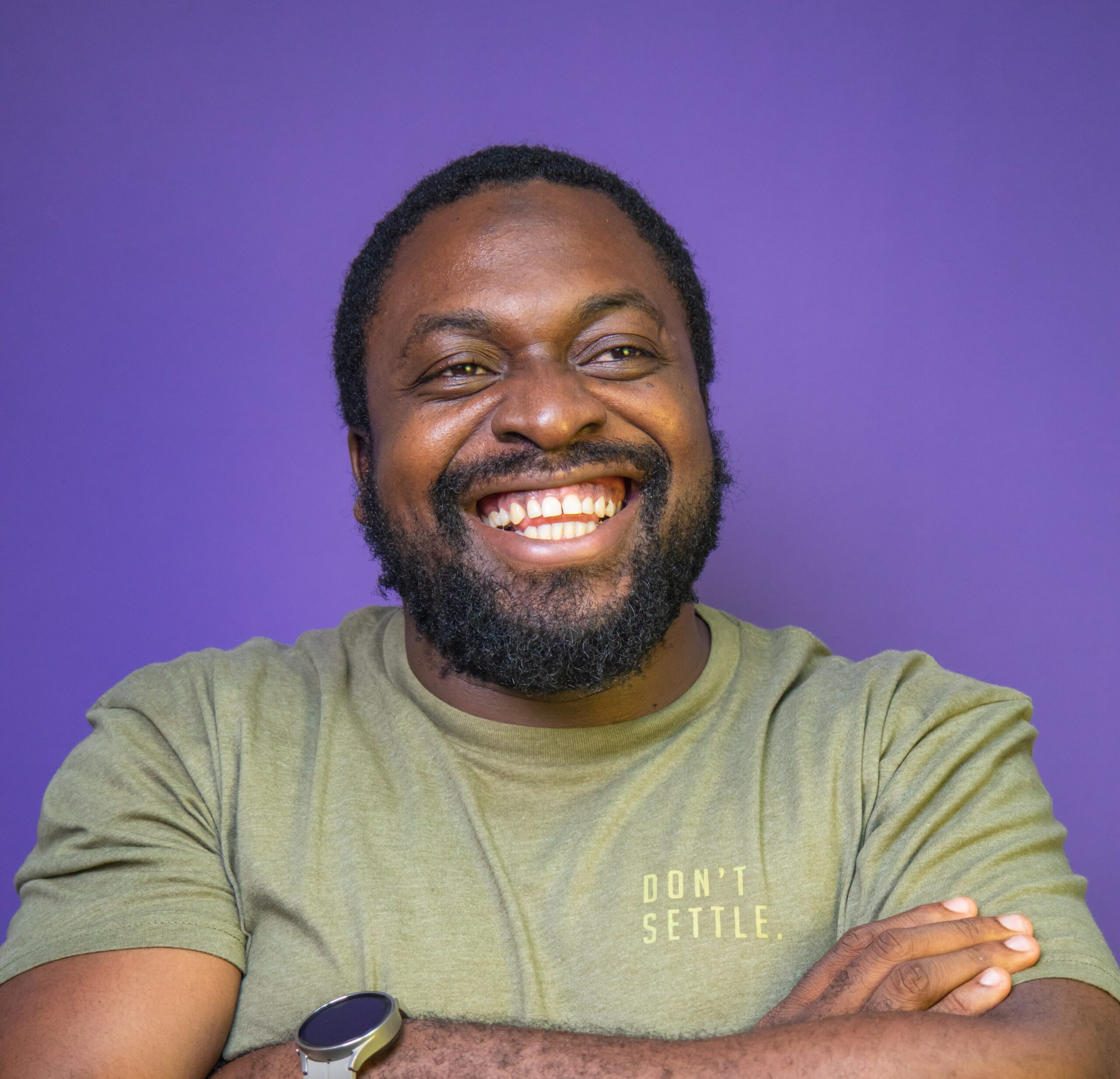
That’s very impressive. What impact do you hope this will have on the next generation of Nigerians who may or may not be interested in reading newspapers, no thanks to social media
I think about our work as digging a public well – someone will fetch water to boil and make eba, and another will use it to clean. Our work has unlimited utility beyond reading. Think about a filmmaker adapting stories from old newspapers into film or the photos in the fashion section for costuming. Consider interest groups exploring old policies’ impact on current realities and how it might drive their efforts. Or economists building inflation calculators because now they have access to the price of goods and the spending power of the naira over the decades.
Or think about how ChatGPT and other machine learning models can suddenly generate more quality insights around Nigeria because they’re now enriched with dense, high-quality information. Frankly, it’s less about just reading the newspapers by themselves and more about what happens when we suddenly have access to millions of pages of newspapers from the last hundred years.
That makes sense. How did you feel when the first scanning was done?
Omo! We first announced this project in July 2020 and couldn’t scan the first paper until April 2023. In between that was trying to register as a legal entity during a judicial crisis, raising tens of thousands of dollars to purchase a scanner, and then waiting 13 months to get it here because of the global supply chain crisis. But there was a moment of, “Oh wow, we’re finally doing this,” quickly followed by a “plenty doings dey to do.”
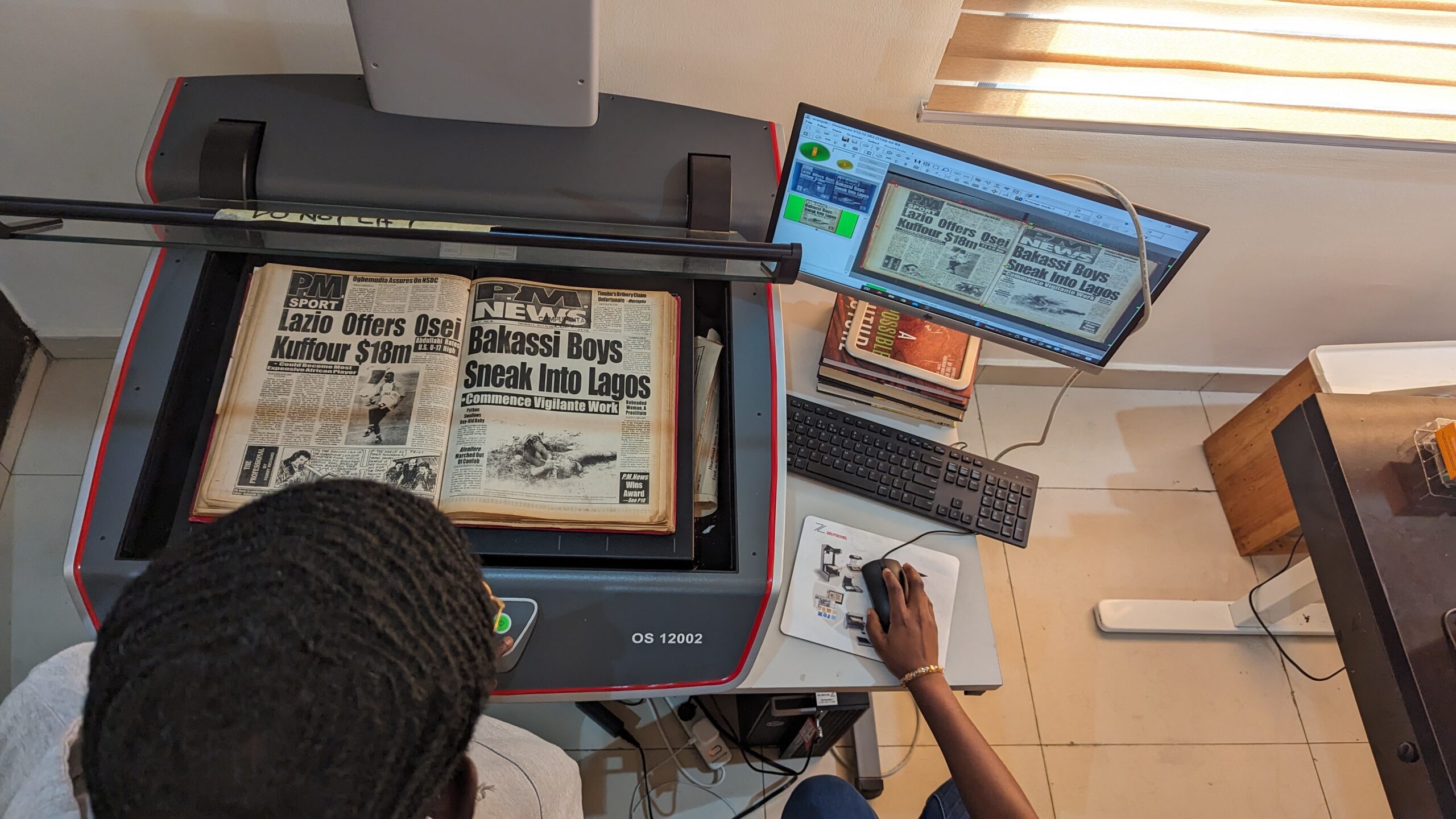
Scanning in progress. Courtesy: Fu’ad Lawal
Tell us about Vistanium
Vistanium is my personal experiment exploring the things you can do with content and all the ways you can bend it. I like making things and crafting stories that slap. Over the past decade, I’ve made all kinds of media – text, video, audio, print – and I probably can’t count the volume. Until 2020, part of my full-time job had been to be on the interviewing side – your side. Now, I want to find extraordinary people and make stuff with them across all formats. From writing a compelling story about decades-long addiction to HundredGood’s yearly mission to curate all the good things that have happened across Africa in the past year; the mission is to create content products people will love. Vistanium is the vehicle for achieving this. Something I’m looking forward to with Vistanium is Sun And Country, a comprehensive and story-led guide to the Nigerian Civil War. We’re basically taking Nigeria’s most pivotal post-independence event and delivering it to a new generation across multiple formats – text, audio, video, and physical spaces.
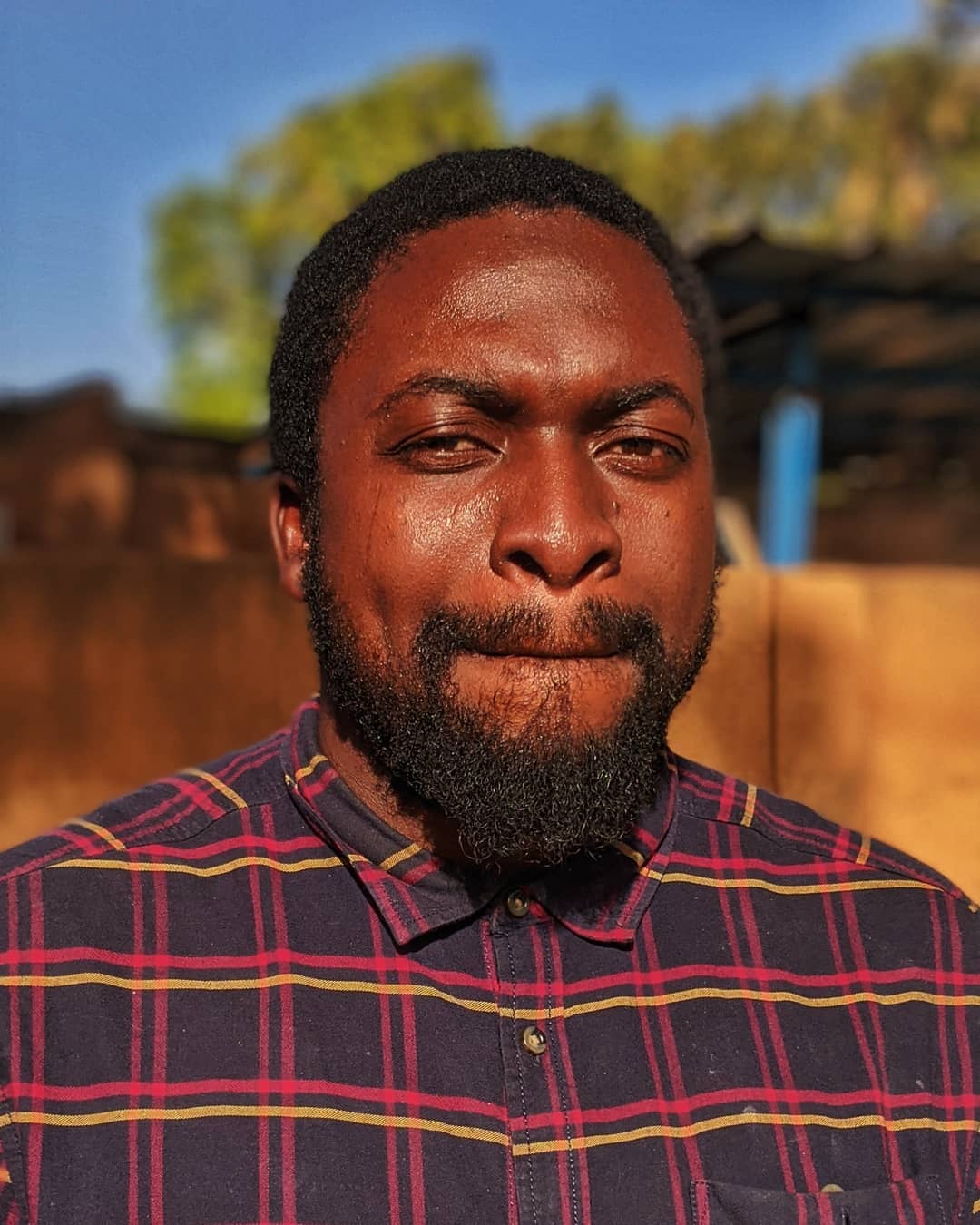
Fu’ad Lawal, via Instagram.
Can you share a moment when you witnessed the positive impact of your work on others, either through Vistanium or Start Archiving?
Ask me again in a year, but I revisit this tweet quite often.
Rimdan*
That’s my grandfather! This is so great. Thank you.
https://t.co/0rB82zqOOJ
— omoge. (@KhloeUmoh) April 27, 2023
You run things, different things. How do you balance your roles as a creative individual and a founder?
Founder is such an interesting word choice. But anyway, I struggle a lot. I don’t have any valuable insight for how I do this, because all I know is struggle and bottomless cups of coffee. It’s technically playing airforce and infantry all at the same time. I like to be very involved in the creative process, but I also have to do admin stuff. But it’s the work – we go run am. This week, I started testing out a scenario where I box out specific things for specific days. By Tuesday, it’d become a catastrophic failure. But I did take some learnings from it that I can improve going into next week.
What’s a typical day like for you, from when you wake up until you go to bed?
I’m in the perpetual struggle between having hyperproductive days or just slugging it out with coffee as my sidekick. But the days that go well – the days where I feel in control of my destiny – tend to start the night before. I go to bed early, I make a mental note about everything to do early. When I go to sleep like this, I tend to already be in the headspace for this. Then, I have to wake up early – because of fajr prayer. Any day I start my day early, it feels like an unfair advantage.
My best hours for focused work are in the morning, even better if I’m starting the morning working out – I haven’t worked out in a while though. But the way my mornings that included workouts used to go were: Wake up → Fajr → Gym → Think about what I want to do about my day on the treadmill → then go and grind. I need to fix up.
Share an unconventional thought about the world that you think people might find uncomfortable or not agree with
I don’t know if this is unconventional – actually, I had to ask around to be able to answer this question. I’ll share two. Firstly, there’s some opinion that taste can’t be taught, that a lot of it is innate. I don’t entirely agree – from first principles, everything we define as taste has pillars. Let’s use Abula – because anything that can’t be explained with food can’t be explained at all.
First of all, there’s knowledge and context of the subject. You need to know what good Èlùbọ́ is, what smooth gbegiri and ewedu looks like, and just a general understanding of how the good stuff gets made. Then there’s the sensory discernment, just the ability to recognise flavour, texture, and the likes, and even have a strong awareness of how you respond emotionally to it. Then your ability to analyse what you’re sensing comes next. I’d also say, the ability to be curious about new methods, then the overall ability to articulate all of this. That’s taste. I believe that by immersing deeply in these things, we can develop our taste.

And so, from a taste standpoint, it makes sense why people say the best place to consume Abula is right at the buka, probably somewhere in Ibadan, and with your hands.
A second thing – even though you asked for one – is that I’m generally optimistic about people. I think it’s because I believe our universal purpose as people is to continue to reinvent ourselves.
What are the little things in your everyday life that bring you joy, get you excited or make you feel alive?
The things I’m working on, the people I’m doing them with, and the glimpse of the future I see ahead. My wife and I walk from the same house but in different rooms. Whenever I get super stressed, or overwhelmed, I just go and hug or disturb her for like a minute. Priceless feeling every time, I tell you. When a lot of your work is media-related, it’s also an unfair advantage to have someone who’s flexed storytelling muscle at CNN in the next room.
Describe Fu’ad using emojis



One item you can never be caught without?
My phone. E no dey ever pass phone.
As a writer, what do you think your life would be if it were a book genre?
(Chaotic) Drama.
Thank you for being on Doing Life With…, Fu’ad
Thank you for having me.
__
Many thanks to Fu’ad Lawal for having this conversation with us and answering all our questions.
Do you love this content, have any feedback for us or want to be a BellaNaija Features contributor? We’d love to read from you. Shoot us an email: features@bellanaija.com
Join us on Saturday for the next episode!
– BellaNaija –
